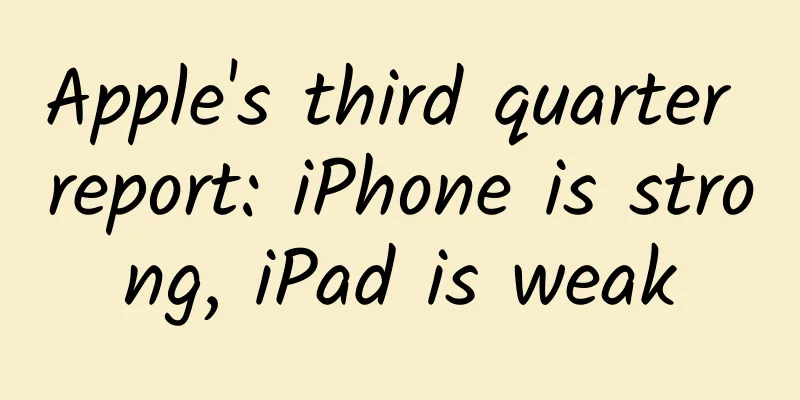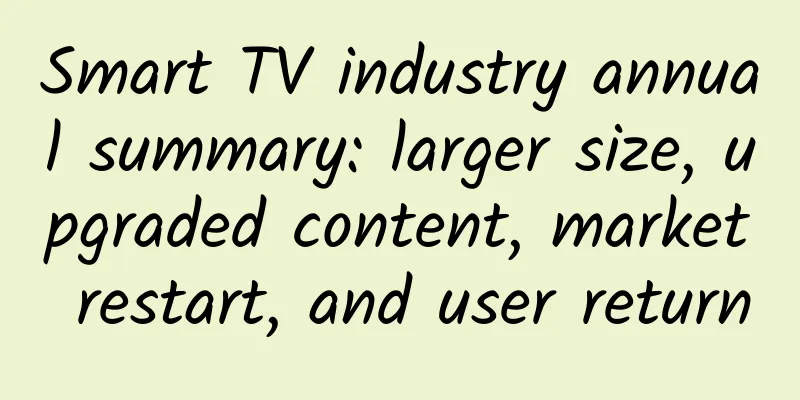When you are in a situation where you can’t stop, why can’t your brain control you?
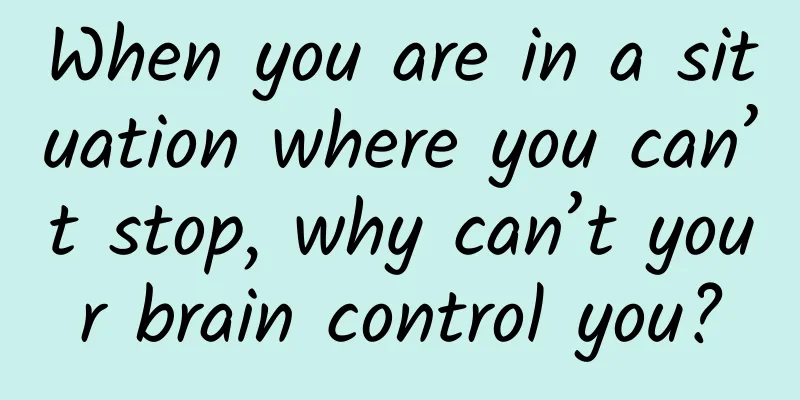
|
Leviathan Press: In daily life, we often find ourselves in a situation where we can’t stop: there’s a voice in our brain telling us to stop, but our behavior seems to be completely out of control, and we keep doing things that still make us feel good. From an evolutionary perspective, desire is an instinct, but there is still a difference between high and low desire, and between desire and preference. Not only that, there is a deeper question that bothers us: Why do we have such a strong desire to get what we want? Marco Leyton, PhD, assured me that the cocaine he bought was legal. And it was not for himself. No way. It was for subjects who responded to Leyton's ad in the local newspaper to test the drug and receive $500 in compensation - for scientific purposes. Leighton did a lot of the legwork—getting approval from the Canadian Food and Drug Administration, a waiver of criminal prosecution, and ethical approval from his own university. “I’m not letting people bring their own cocaine in,” Leighton, an addiction neurobiologist at McGill University in Canada, told me. That would be unethical. All of this, as Layton puts it, is about pursuing one of the deepest questions that plague each of us: Why do we care so much about some things and not so much about others? In other words, why do we desire the things we want? With the drug in hand, Leyden conducted a small study to gain some insights. With just eight participants, it was a relatively rare human experiment, as the field more commonly tests rodents.[1] Moreover, the experiment was so bizarre that I had never read about it in an academic journal before: the subjects were presented with “cocaine paraphernalia, including a mirror, razor blades, straws, and a bag containing 3.0 mg/kg of cocaine hydrochloride.” While the cocaine was the eye-catching component of the four-day study, a special protein drink was the real key. Half of the participants were randomly assigned to drink a milkshake that lacked phenylalanine, an amino acid that helps the body make the neurotransmitter dopamine. This is the chemical that is released when your brain anticipates or demands a reward, such as something sweet or cocaine. So if you fasted before this experiment, as these study participants did, and then consumed only food sources that did not contain phenylalanine, your body chemistry would be subtly altered. Leighton believes that the subjects who consumed this strange breakfast had less dopamine available in their brains. After drinking the milkshake, participants were then invited to use cocaine or, as the study specified, to "divide the powder into three equal parts using a razor blade." Notably, on the phenylalanine-free shake days, Leighton said, "they had less cravings for cocaine. They were less interested in it." Not only that, but this special shake also "reduced the ability of cocaine itself to produce more cravings," he added. And oddly, “it had no effect on drug-induced euphoria,” Leighton said. In other words, they still liked cocaine—they just didn’t crave it as much. While talking to Leighton about his cocaine research, I wondered: Why couldn’t a milkshake without phenylalanine be the answer to similar problems like addiction, overeating, and compulsive consumption? First, because it’s impractical. Phenylalanine is present in nearly all protein food sources [2]. So unless someone wants to consume only specialty lab-grown shakes for their entire life, this isn’t going to work. But also because Leighton expects it might reduce the motivation to do anything, “so the whole world is a little bit duller now,” Leighton said. But what makes this cocaine study so interesting is what it reveals about where and how desire resides in the brain. Desire is undoubtedly important. It is the fulcrum of our happiness. © Tim Lahan Desires—for food, companionship, hobbies, sex—can bring excitement, joy, and even purpose to life. That's a wonderful thing! But too much of it can lead to addiction, unhealthy eating habits, and shameful feelings of being torn between what's good for us and what we desire. We can’t be free of desires, but we can’t be overwhelmed by them either. The solution researchers have long sought is a way to help people find balance, one that reduces desires enough to be effective but not so much that we retain our drive to find joy in the world. It could address a range of problems, including substance abuse and overeating. Scientists are beginning to notice that GLP-1 drugs like Ozempic have the potential to achieve this goal. You may be more familiar with some of their brand names, such as Ozempic, Wegovy, or Mounjaro. Or their generic names: Semaglutide and Tirzepatide. First approved for the treatment of diabetes, this class of drugs has been used for weight loss and has grown in popularity. In the last three months of 2022, clinicians in the United States wrote more than 9 million prescriptions for these drugs, according to Trilliant, a health care market research company. The drugs have made headlines for their use among celebrities and sparked important discussions about how society views obese people. But they are also part of an emerging story: There are faint early signs that GLP-1 may also be used to treat drug addiction. We don’t fully understand how these drugs work. But they seem to tap into the brain’s desire system and illuminate an underlying aspect of human existence: What we want, and why we want it, is often outside of our conscious control. © The Daily Beast What is desire? After interviewing several researchers for this story, I realized that the English word “want” doesn’t accurately describe the psychological phenomenon that Layton had been describing. “It’s not your desire for world peace,” says Kent Berridge, a neuroscientist at the University of Michigan. “It’s not your desire to exercise or lose weight.” Those are “real desires,” he assures me. But they’re not the desires behind the behaviors that the brain’s dopamine system drives. “They don’t give you that impulse.” Picture this. You're at a family gathering, sitting on the couch. In front of you is a bowl of peanuts. Plain, roasted, salted peanuts. Not a particularly appetizing snack. And you're not particularly hungry. But in a moment of restlessness, you pick up a peanut. A moment later, you pick up another. And another. You know, of course, that when dinner comes, there will be more delicious food. You didn't really want to eat those peanuts, but now that half of them are gone, there's a silent, unspoken, unending force inside you that drives you to reach for more. That's desire. © Anesthesia Optimal Solutions This is a manifestation of our mesolimbic system, the dopamine-fueled reward pathway in the brain.[3] This system can influence our daily decisions. It drives you to reach for the peanuts, but it also drives you to do other things, like scroll through TikTok or Instagram videos on your phone. Leiden’s cocaine experiments highlight another key to defining desire—desire is not the same as liking. You might find this idea confusing. Scientists were once puzzled by it, too. “When I got into this field decades ago, we thought these two words were basically describing the same mental process,” Berridge says. It makes sense to conflate the two. In everyday life, liking and desire seem to "fit together pretty well," Berridge said. We want things because we like the way they taste or how they make us feel. Given that liking and desire are considered equivalent, it is interesting to see that research has shown that they can actually be separated. First, animal studies. Starting in the late 1980s, Berridge and his colleagues began to surgically or chemically weaken the ability of laboratory mice to produce dopamine.[4] Without dopamine, “the mice wouldn’t voluntarily eat or drink or actively pursue any reward,” Berridge says. “People had thought they’d lost all sense of euphoria.” But the study concluded that they clearly hadn’t.[5] There is compelling evidence that this distinction between liking and wanting exists in humans as well. This is exactly what the Leiden cocaine study showed – that liking cocaine and wanting it can be separated. © The Ohio State University Wexner Medical Center Leighton has replicated his dopamine-reducing experiments with alcohol and tobacco. When he put people in a low-dopamine state, not only did they report less craving for the drug, they were also less willing to work hard on a tedious computer task in order to get the drug.[6] He even did a version of this study with money.[7] “Money isn’t a drug. It doesn’t even taste good!” But when Layton put his subjects in a low-dopamine state, participants “were less willing to put in the effort to get the $5.” In all of these experiments designed to reduce dopamine, the same pattern emerged. “The drive to seek the reward is reduced, even though the euphoria remains,” Leighton said. “The wine still tastes good, the cigarettes are still pleasurable, and having a little extra money in your pocket is still great.” Another key point about the desire system, and arguably the most frustrating one, is that it often transcends our conscious control. “A lot of people would argue that we have very little [conscious] access to our motivational processes,” Leighton says. (Although he didn’t formally measure this in his study, Leighton says his participants had a hard time guessing whether they had gotten a dopamine-reducing shake or a placebo shake. The low-dopamine days didn’t seem particularly unusual, either. On the low-dopamine days, participants seemed to just say, “I’m going to call it a day. That’s enough. I’m done.”) © BUST Magazine When it comes to food, says Alexandra DiFeliceantonio, a nutritional neuroscientist at Virginia Tech, you can seek out specific foods through conscious choice. “I think I want this because I want to eat healthier,” she says, for example. Or we might like the taste or texture of a food or the memory it evokes. But there may also be unconscious processes that train the brain’s reward system. For example, suppose there is a neural pathway connecting our gut to our brain that tells the brain’s reward system the nutritional content of a food, thereby creating a desire for it. Why did you reach for the peanuts? You could tell yourself, "I'm just feeling a little irritated," but maybe your craving system has learned to associate nuts with lots of nutritious calories. Image Conscious cues like taste and smell can play a role in what foods we want to eat, but there are also subconscious cues that come directly from our gut. © Annual Review of Psychology “There are actually two pathways that carry reward signals to the brain,” says Dana Small, a neuroscientist at Yale University who studies our food choices. “One is what you typically think of when you think of food rewards — taste, smell, or appearance. And then there’s another pathway — signals that are generated during digestion without your conscious awareness.” To illustrate the subtle power of this subconscious pathway, she told me about a study (conducted in both animals and humans)[8][9] in which researchers used two similar-tasting drinks but secretly injected more calories into one of them. In these studies, “dopamine circuits responded significantly more to the flavor paired with heat than to the flavor not paired with heat,” Small said. DiFelice Antoniou believes that many of our thoughts about why we want food "are narratives that we superimpose on top of our unconscious processes. For example: I like that meal because it reminds me of my grandmother's cooking." But that narrative isn't necessarily correct or complete. You may also like that food because of its caloric content. Of course, I was told, desire can begin with conscious liking. Addiction, in short, is the desire system at its most extreme. “Addiction…usually starts with liking,” said Mehdi Farokhnia, a medical scientist who studies addictive behaviors at the National Institute on Drug Abuse. Image © Greenpointers You take a drug because it's pleasurable, you like it. But as addiction progresses, "the level of liking decreases." You may hate the thing you crave. Or you may want it not for pleasure but to prevent some uncomfortable situation, such as withdrawal. Addiction reveals another secret of the appetitive brain: What we want does not always reflect our biological needs. "The older view was that our eating, drinking, and other primarily motivated behaviors were tightly coupled to our immediate physiological needs," Leighton explains. But that's not true -- if you miss a meal, you won't immediately die from malnutrition. "The vast majority of food-seeking behavior has nothing to do with nutritional needs," Leighton says. In contrast, the desire system anticipates and preempts our physiological needs. But it can easily overreact, even choosing targets for seemingly no reason. For example, people with Parkinson's disease, whose brains sometimes have trouble producing dopamine, are often treated with dopamine replacement therapies. With these treatments, strange side effects can occur. Sometimes, the desire system is focused on sex, overeating, gambling, or shopping. "It's like an addiction," Berridge says. But why shopping sprees, why gambling? What compels a person to prefer one to the other? “We don’t have a clear understanding of how this happens in the brain,” Berridge said. Turn down the desire knob Sometimes desire seeps into the conscious part of our brain and sends up a clamor of thoughts. But awareness is not the same as control. “The message I’m getting from my brain is ‘You’re dying, you’re starving, you’re going to die,’ and it’s constant,” says Sarah (whose last name I’m withholding for privacy reasons), who recently told me about her “food noise” — intrusive thoughts about food. Whenever she made progress in her weight loss efforts, the "food noise" in her brain intensified. "Whenever I tried to do anything," she says, "the thoughts about food would keep popping up." It wasn’t an immediate feeling of hunger. “I felt more like a rush,” she said, “like my body was telling me, ‘I need this.’ ” It was impossible to ignore, Sarah told me. When her brain was telling her, “You need food now,” it became very difficult to fall asleep, even when she wasn’t hungry. Image The public generally believes that dopamine is a substance that produces pleasure, but current pharmacological research believes that dopamine is actually a substance that records the significance of incentives. In other words, dopamine expresses the desire or aversion to a certain result, and then drives people to make it happen, or avoid it. © MIT Stories like Sarah’s illustrate why asking people to use sheer willpower to suppress powerful impulses is ultimately a recipe for failure. Look around you. Drug and opioid use in the United States continues unabated. Research consistently finds[10] that diet and exercise are not actually effective solutions for weight management. It’s not that diet and exercise don’t work; there are successful cases. But if you evaluate the effectiveness of diet and exercise alone as a weight loss prescription, you’ll find that they don’t help many people. When people inhibit behavior through self-control, they are trying to use their conscious brain to fight their unconscious brain. It is never a fair fight. Notably, GLP-1 drugs could level the playing field. The drugs are called “GLP-1s” because they mimic a natural hormone called glucagon-like peptide-1, which performs many actions in the body, but often takes circuitous routes. It works primarily in the pancreas, stimulating insulin, which lowers blood sugar. It then suppresses appetite through a number of proposed mechanisms, including increasing the time it takes the stomach to empty, which creates a feeling of fullness. “What they do is create a sense of early satiety,” Small said. Image © Frontiers These drugs aren't perfect for weight loss. Many people struggle with side effects like nausea, or find their progress stalls. So far, GLP-1 drugs have been studied primarily in people with diabetes, heart disease, and obesity, so little is known about their effects in other populations. Like any drug, they carry some risks. For example, GLP-1 drugs can increase the risk of thyroid cancer; they should not be taken during pregnancy; and despite more than a decade of safety data from people with diabetes showing that these drugs are largely safe, scientists still don’t understand exactly how they work.[11] But one intriguing part of the puzzle lies in the brain. GLP-1 drugs appear to act directly as a neurotransmitter in the brain, affecting neurons in the brain’s reward system and in the hypothalamus, which regulates the body’s metabolism.[12] Berridge says that these drugs “may not act primarily on dopamine neurons themselves, but on neurons that communicate with dopamine neurons.” So it's a complicated situation. But no matter how these drugs work, they achieve a neat result. They seem to be able to tap into the desire system, turning it down while leaving the liking intact. “I still love food,” says Sarah, who took the GLP-1 drug Mounjaro a few months ago after learning she was prediabetic. “Food still tastes good to me. I just experience it in a way that I didn’t before.” Best of all, she can experience eating without that “food noise.” "About 24 hours after I first started taking the drug, my body and mind were calm. I wasn't thinking about food anymore." Eventually, she was able to eat on schedule without distracting thoughts between meals. "It was a huge departure from the way I had lived my life," she says. Sarah lost 65 pounds on the drug. "It was wonderful, for sure. But the calmness of it all — that was the best experience." The researchers are now exploring whether this inhibitory effect of GLP-1 drugs is not limited to food. Notably, this class of drugs has also shown promise in reducing cravings for other substances, such as alcohol, nicotine, cocaine, and even opioids. In theory, this makes sense. “We have only one reward system,” DiFelice Antoniou said. “For food, sex, and drugs, there is no special reward system.” Therefore, accessing the reward system through appetite should influence cravings for other things. There is a lot of evidence that GLP-1 drugs can reduce drug and alcohol dependence. “A lot of medical reports from patients,” Farohnia said, “are people who are taking these GLP-1 drugs … for diabetes, obesity, and other conditions.” He has heard reports from patients and colleagues that “they have completely or almost completely lost their desire to drink or take drugs.” Stories like this one are beginning to appear in scientific journals reporting cases[13], and users on social media are expressing surprise at the reduction in their alcohol dependence. Image © Healthline This is supported by evidence from animal studies starting in the early 2010s.[14] Mice given GLP-1 drugs had less urges to seek out drugs and alcohol than addicted controls.[15] Monkeys given GLP-1s also drank less.[16] Human studies are beginning to emerge. A randomized controlled trial funded by Novo Nordisk (the maker of Ozempic and Wegovy) found that the GLP-1 drug exenatide reduced the number of heavy drinking days in obese patients. At the recent meeting of the American Association for the Advancement of Science in Denver, Colorado, researchers from Pennsylvania State University presented unpublished data from a very small randomized controlled study (just 20 participants) of the GLP-1 drug liraglutide in an opioid withdrawal clinic. The study found that participants who took GLP-1 had a 40% reduction in cravings compared with those who did not take it (all participants in the study also received other withdrawal medications, such as buprenorphine). Patricia Grigson, a Pennsylvania State University scientist who provided the data, stressed that the reductions in cravings were generally equivalent to 14 days of treatment as usual, which costs about $15,000 in her clinic. "We really need to evaluate it in a larger population, but it's very promising," Grigson said. It’s important to note: This data is not definitive. But it is promising, and if verified, the impact could be widespread. More human clinical trials are underway for a variety of substances, including alcohol and nicotine. Although scientists in the field believe these drugs could be breakthroughs, they still need to proceed with caution. "I think this is one of the most promising drugs and targets we have in the addiction field," Farochnia said, "but to draw conclusions, we really need to wait until clinical trial data comes out." Until then, the picture that emerges is this: While GLP-1 is primarily used to control appetite, it has the potential to reduce the overall intensity of the strongest cravings. GLP-1s don’t reduce cravings for everything. Evidence suggests they just fine-tune the intensity of cravings. “I’m looking at the early data (i.e., animal studies), and this is how I interpret them,” says Elizabet Jerlhag Holm, a pharmacology researcher who has conducted animal studies on GLP-1 and addictive behaviors. Holm notes that GLP-1 generally works on the most intense cravings and desires, and may even be involved in areas such as sexual addiction. Berridge agreed. "It may not reduce all desires, it may just reduce the upper limit of the intensity of desires. Particularly strong desires, impulses, they may be weakened a little bit." Are our desires purely chemical? I asked Sarah, a Mounjaro user, if she felt like a different person since she started taking the drug. “100 percent yes,” she said. GLP-1s are already likely to become one of the most commonly used drugs in the United States. They help treat obesity and heart disease—each of which affects millions of people. Further research may find that they are more often used for people with drug addiction, increasing the potential number of people who can prescribe them. JPMorgan Chase predicts[17] that by 2030, the number of people using these drugs in the United States could reach 30 million. Image © Happiest Health In this case, how do they change our overall desires? Will many people feel like slightly different people, with different desires? And will that have social, economic consequences? There are numerous reports of GLP-1s changing compulsive behaviors in subtle ways: users stop biting their nails and picking their skin.[18] (As these drugs are tested in a wider range of people, Farochnia says he will be watching for anhedonia, or a lack of interest or enjoyment in life.) Amid all this talk of desires and preferences, I couldn't help but think about free will. If we are so subconsciously influenced by drugs, then are we just the sum of these chemical interactions? “If you and I go for a drink tonight, maybe I’ll answer that question,” Layton joked. “Of course, we can exercise free will in these processes,” he said when pressed. “When we walk past the refrigerator and open the door and find that we are not hungry, we can control ourselves. As an amateur, I think free will exists, even though many of our behaviors, even many of our tendencies, reflect subconscious phenomena. We can control things.” Yes, we can control things, but when you have a voice in your head telling you, “You’re starving,” like Sarah did, and you have to be in that sense of control all the time, it’s exhausting. “I was kind of giving up,” she said of her weight loss. “I had decided if I wasn’t going to live long, I wasn’t going to live because it was too painful.” Taking Monjouro changed everything for her. Too many people are caught in an unfair battle with their desires. They are told to use some kind of willpower to overcome a desire system they are barely aware of. This may be the most compelling thing about GLP-1s: at least when it comes to controlling appetite, they have the potential to provide people with reliable modulation to turn down the noise of desire in their brains. "It's not just about our willpower," Sarah said of obesity. But it should feel the same way for people with addiction. "It's a disease that needs to be treated, and there are treatments out there that can help us. I think for a lot of people, it's really liberating." By Brian Resnick Translation/Yuba and Thin Bamboo Proofreading/Rabbit's Light Footsteps This article is based on the Creative Commons License (BY-NC) and is published by Yuzhu and Shouzhu on Leviathan The article only reflects the author's views and does not necessarily represent the position of Leviathan |
>>: What tricks have various countries prepared for the "gold rush"?
Recommend
The highest mountain in the world is not Mount Everest?
Let me ask you a question first, which mountain i...
Surprise! The "supermoon" will be here for the Mid-Autumn Festival. This year, you can "feast your eyes"
The bright moon rises over the sea, and the world...
OpenAI: OpenAI's annual revenue is expected to triple to $12.7 billion by 2025
Driven by the strength of its paid AI software, O...
Download Peipei's Dad's Guide to Raising a Baby on Baidu Cloud
Peipei's father's baby-raising strategy r...
A comprehensive inventory of model hard-working animals, dung beetles are on the list?
Today is the third day of the May Day holiday. Wh...
The first batch of user reviews for iOS 14.7 are out, bringing 3 bad news, and it is recommended not to update for the time being
As the first batch of user reviews of iOS14.7 cam...
Feishu: How to achieve team efficiency improvement and organizational upgrade
Feishu: How to achieve team efficiency improvemen...
Three ways to input wearable devices
[[125607]] With the development of wearable devic...
With the SSD wave coming, why do people still need a mechanical hard drive?
Since IBM invented the Winchester hard drive in 1...
How to tell whether your mobile phone screen is good or bad? Teach you how to understand screen parameters
This article explains in detail what these six pa...
There are many types of Internet operation jobs. How should I choose?
There are indeed many subdivisions of operations ...
The dilemma of operators: WeChat in front and Apple behind
[[134314]] Recently, there has been a lot of disc...
What are the functional requirements for Guangzhou hotel reservation mini program? Which company is best for developing hotel reservation mini program?
Nowadays, the hotel industry is no longer limited...
What are the daily work contents of SEO and what are the tasks of SEO?
Before I knew it, I have been working in SEO for ...
Seahorse dad can "give birth"
They are the only species where males give birth ...
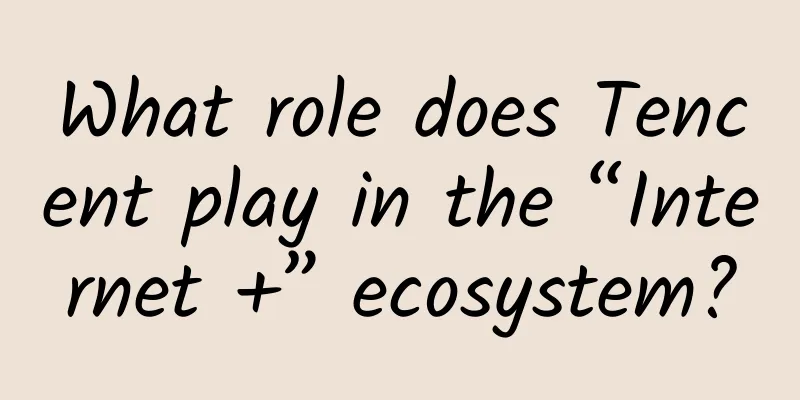


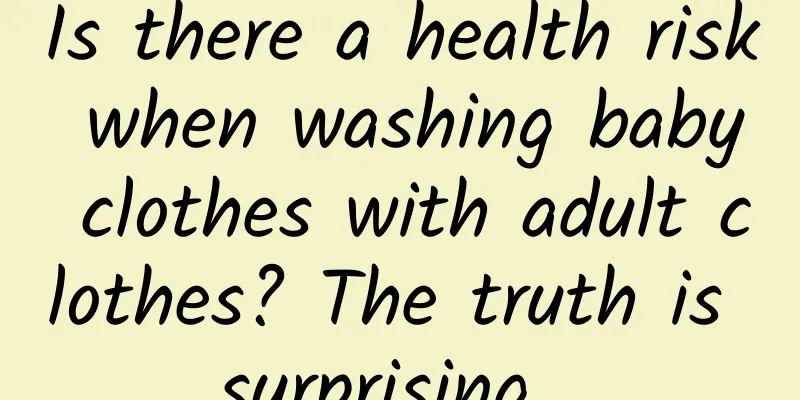

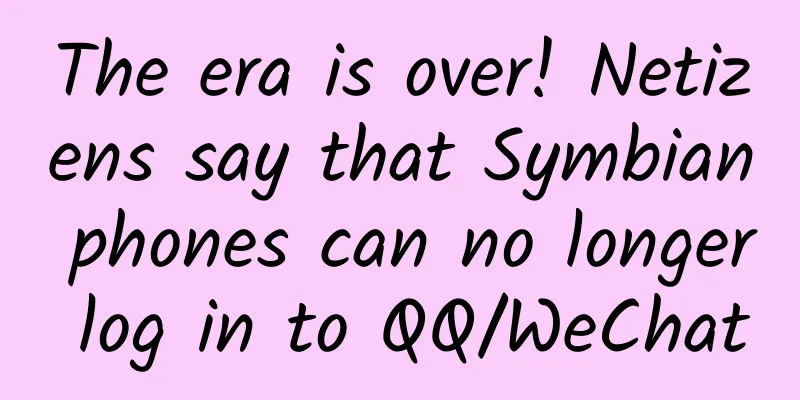
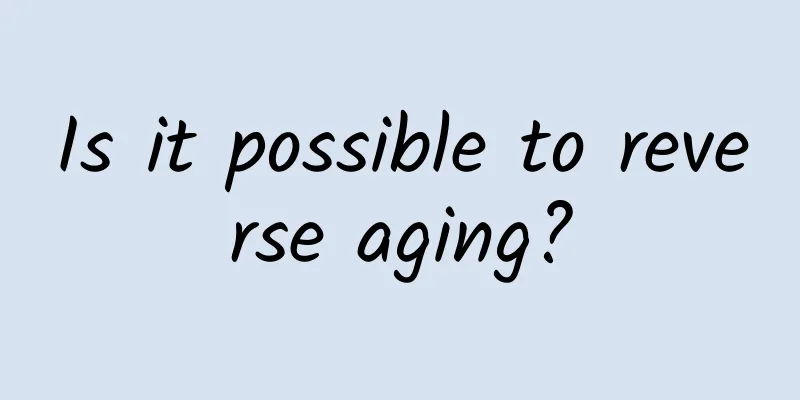
![[Smart Farmers] Understanding the “Army Bugs”: Why is the Fall Armyworm so lethal?](/upload/images/67f2375897ca8.webp)
